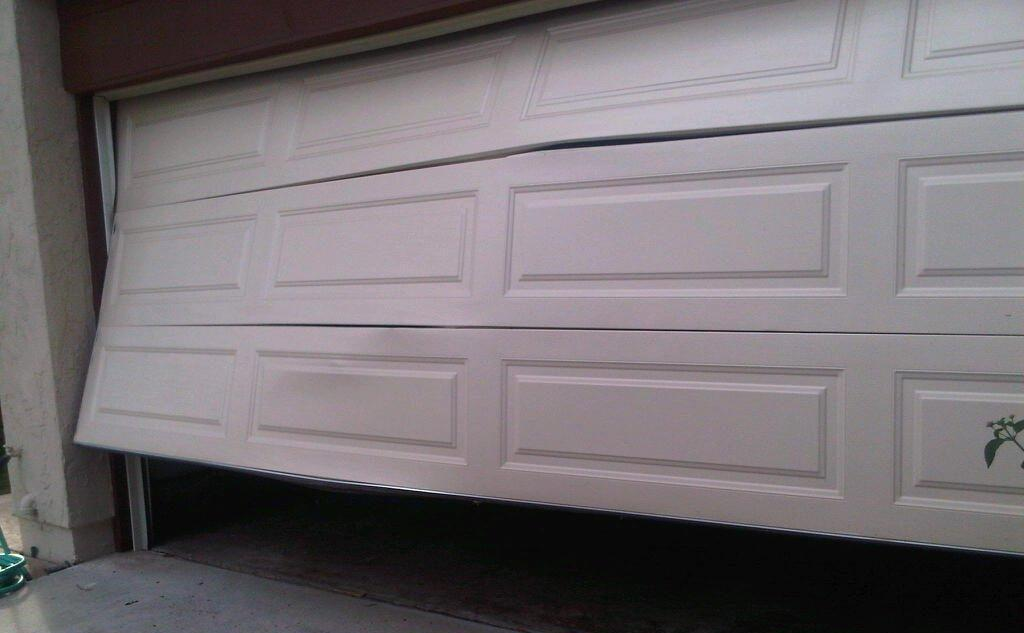Are you considering investing in a new garage door? It’s a decision that can significantly impact the security, energy efficiency, and overall aesthetics of your home. Before you make your purchase, there are several crucial considerations to keep in mind. In this article, we will explore the key factors to evaluate when choosing a new garage door and provide you with valuable insights to ensure you make an informed decision.
Before You Install a New Garage Door: Expert Tips for a Smooth Transition
Your garage door serves as a vital entry point to your home and plays a crucial role in protecting your vehicles and belongings. Investing in a new garage door not only enhances the curb appeal but also improves the functionality and security of your property. Let’s delve into the important factors to consider before making this important investment.
1. Why invest in a new garage door?
Before we jump into the details, let’s understand why investing in a new garage door is worth considering. An upgraded garage door can enhance the overall value of your home, provide better insulation, increase security, and improve the aesthetics of your property. Additionally, modern garage doors come with advanced features and technologies that make daily operations more convenient and secure.
2. Assessing your garage door needs
When choosing a new garage door, it’s essential to assess your specific needs. Consider the following aspects:
2.1. Security
Security is a primary concern for most homeowners. Look for garage doors with robust locking mechanisms, durable materials, and advanced security features like rolling code technology. This ensures that only authorized individuals can access your garage, providing you with peace of mind.
2.2. Energy Efficiency
An energy-efficient garage door can help reduce heating and cooling costs. Look for doors with proper insulation, weather stripping, and energy-efficient materials. These features can keep your garage at a comfortable temperature and prevent energy wastage.
2.3. Aesthetics
Garage doors contribute significantly to the overall aesthetics of your home. Consider the architectural style of your house and choose a garage door that complements its design. You can select from various styles, colors, and finishes to match your preferences and create a visually appealing exterior.
3. Types of garage doors
There are different types of garage doors available in the market, each with its unique characteristics and functionalities. Let’s explore some of the popular options:
3.1. Sectional garage doors
Sectional garage doors consist of separate horizontal panels that open vertically. These doors are ideal for maximizing space both inside and outside the garage. They offer excellent insulation, security, and durability.
3.2. Roll-up garage doors
Roll-up garage doors are made of horizontal slats that roll up into a coil above the opening. These doors are space-saving and provide a sleek and modern appearance. They are often chosen for commercial properties or garages with limited headroom.
3.3. Swing-out garage doors
Swing-out garage doors open like traditional doors, swinging outwards from the center. These doors add a classic and charming touch to your home’s facade. However, they require ample space in front of the garage for opening and closing.
3.4. Side-hinged garage doors
Side-hinged garage doors operate like regular doors and swing open from hinges on the sides. They offer easy pedestrian access and are a suitable choice for garages used as workshops or storage spaces.
3.5. Sliding garage doors
Sliding garage doors feature horizontal panels that slide to one side of the garage opening. They are a practical choice for garages with limited headroom or where the ceiling needs to remain clear.
4. Material options for garage doors
When selecting a garage door, the material plays a crucial role in its durability, maintenance requirements, and aesthetics. Here are some common material options:
4.1. Steel
Steel garage doors are popular due to their strength, durability, and low maintenance. They are available in various styles and can be customized to match your home’s architecture. Steel doors are also relatively cost-effective.
4.2. Wood
Wooden garage doors offer a timeless and elegant look. They can be customized with different finishes and stains to suit your preferences. However, wood requires regular maintenance to prevent rotting, warping, or damage from pests.
4.3. Aluminum
Aluminum doors are lightweight, resistant to corrosion, and require minimal maintenance. They are a popular choice for contemporary homes and are available in various styles and finishes.
4.4. Fiberglass
Fiberglass doors are known for their durability and resistance to dents, rust, and warping. They can mimic the appearance of wood or other materials, providing versatility in design. Fiberglass doors are also energy-efficient.
5. Considerations for garage door openers
The garage door opener is an essential component that contributes to the convenience and security of your garage door. Consider the following factors when selecting a garage door opener:
5.1. Types of garage door openers
There are different types of garage door openers, including chain-drive, belt-drive, screw-drive, and direct-drive openers. Each type has its own benefits in terms of noise level, smooth operation, and lifting capacity. Choose the one that best suits your needs and budget.
5.2. Security features
Ensure that your chosen garage door opener offers advanced security features such as rolling code technology, which generates a new access code every time the door is operated. Additionally, consider openers with battery backup systems to ensure operation during power outages.
5.3. Noise level
Garage door openers can produce varying levels of noise during operation. If noise is a concern, look for openers with quiet operation mechanisms such as belt drives or direct drives. These options offer smoother and quieter performance.
6. Budgeting for a new garage door
Setting a budget is crucial when investing in a new garage door. Consider the upfront cost of the door, installation charges, additional features, and long-term maintenance requirements. Remember that investing in a high-quality door and opener can save you money in the long run by minimizing repairs and increasing energy efficiency.
7. Hiring a professional installer
To ensure proper installation and optimal performance of your new garage door, it’s advisable to hire a professional installer. A reputable installer will have the expertise and tools required to install the door safely and efficiently. They can also provide guidance on selecting the right door and opener for your specific needs.
8. Maintaining your garage door
Regular maintenance is essential to keep your garage door functioning smoothly and prolong its lifespan. Follow the manufacturer’s guidelines for maintenance tasks such as lubricating moving parts, inspecting springs and cables, and checking the balance of the door. Additionally, promptly address any issues or repairs to prevent further damage.
Investing in a new garage door is a decision that can significantly impact your home’s security, energy efficiency, and overall aesthetics. By considering crucial factors such as security, energy efficiency, types of garage doors, material options, garage door openers, budgeting, professional installation, and maintenance, you can make an informed choice that meets your specific needs and enhances the value of your property.
FAQs
Can I install a new garage door myself?
Installing a new garage door can be complex and requires specific skills and tools. It’s recommended to hire a professional installer to ensure proper installation and avoid potential safety risks.
How often should I maintain my garage door?
Regular maintenance is important to keep your garage door in optimal condition. Perform visual inspections monthly and lubricate moving parts every six months. Schedule professional maintenance at least once a year.
Are there any tax credits or incentives available for energy-efficient garage doors?
Depending on your location and local regulations, you may be eligible for tax credits or incentives when installing an energy-efficient garage door. Check with your local authorities or consult a professional installer for more information.
What should I do if my garage door is not opening or closing properly?
If your garage door is experiencing issues with opening or closing, check for any obstructions, ensure the opener is functioning correctly, and inspect the springs and cables. If the problem persists, contact a professional garage door technician for assistance.
Can I replace my garage door opener without replacing the entire door?
In many cases, it is possible to replace the garage door opener without replacing the entire door. However, it’s essential to ensure compatibility between the opener and the door. Consult a professional to determine the best course of action based on your specific situation.
How long does a garage door typically last?
The lifespan of a garage door can vary depending on various factors such as material, maintenance, and usage. However, a well-maintained and high-quality garage door can last anywhere from 15 to 30 years.
Are there any safety features I should look for in a garage door opener?
Yes, look for safety features such as automatic reversal systems, which detect obstructions and reverse the door’s movement to prevent accidents or injuries. Additionally, consider openers with infrared sensors that can detect objects or people in the door’s path.
What are the benefits of an insulated garage door?
Insulated garage doors provide better temperature regulation, reducing heat loss in the winter and heat gain in the summer. They also contribute to noise reduction, increased durability, and improved energy efficiency.
Can I add windows to my garage door?
Yes, many garage door options allow for the addition of windows. Windows can enhance the aesthetics of your garage door, allow natural light into the space, and provide a view of the exterior. Consult with your chosen garage door manufacturer for window options and designs.
Is it possible to automate an existing manual garage door?
Yes, it is often possible to automate an existing manual garage door by installing a garage door opener. However, the feasibility depends on the door’s design, condition, and compatibility with the chosen opener. Consult a professional to assess the possibility and ensure a safe and proper installation.





